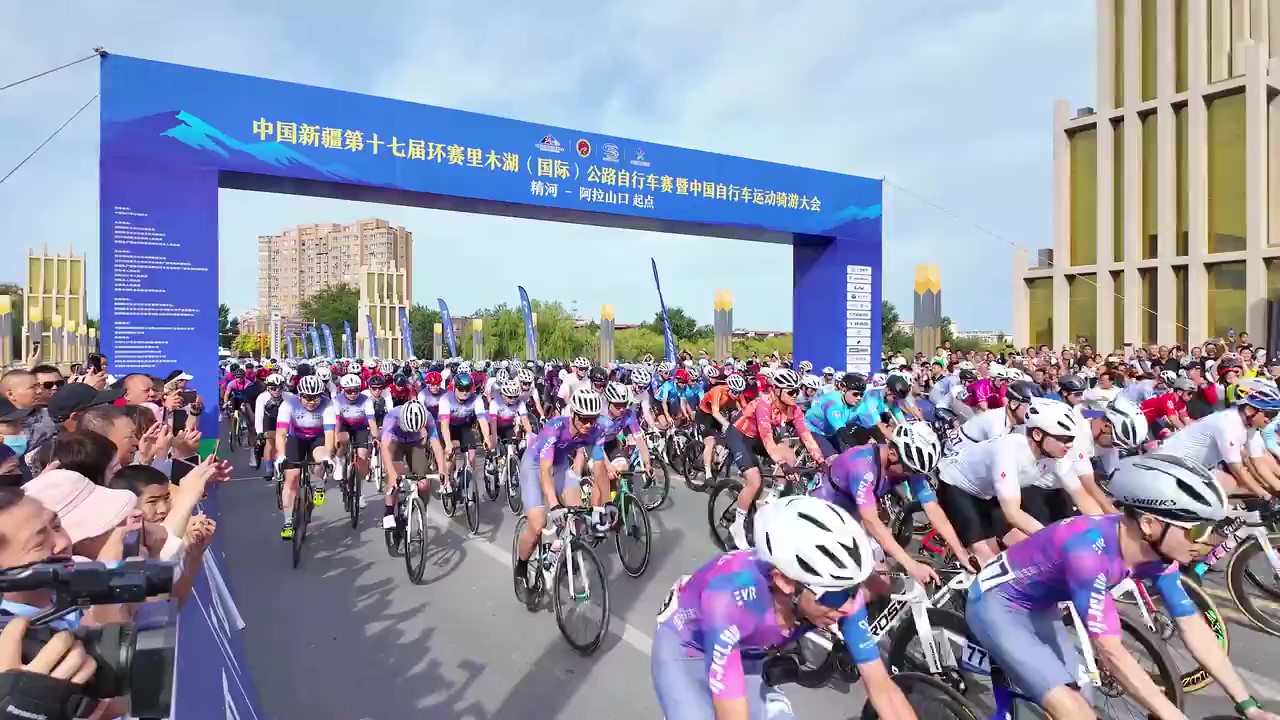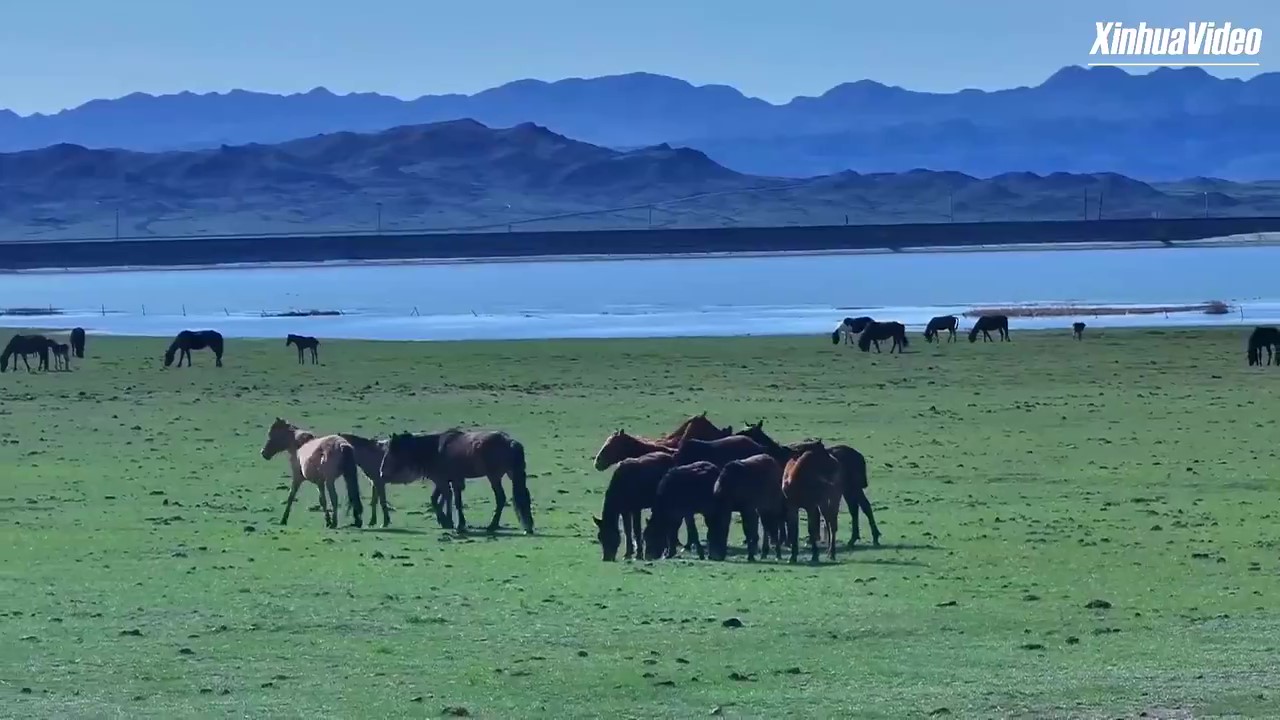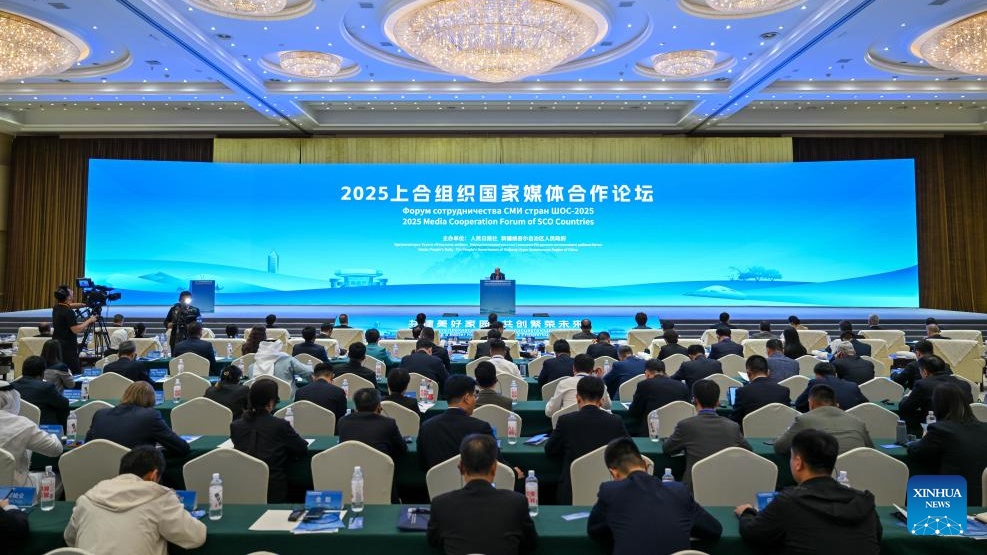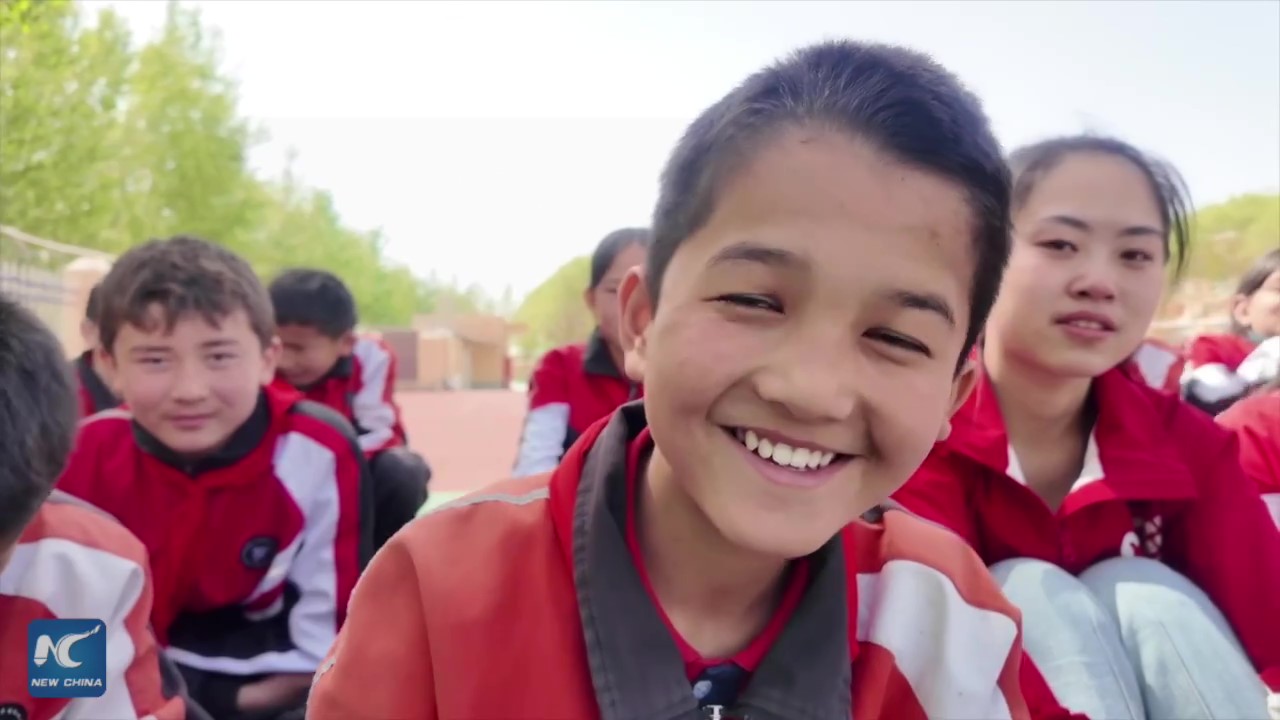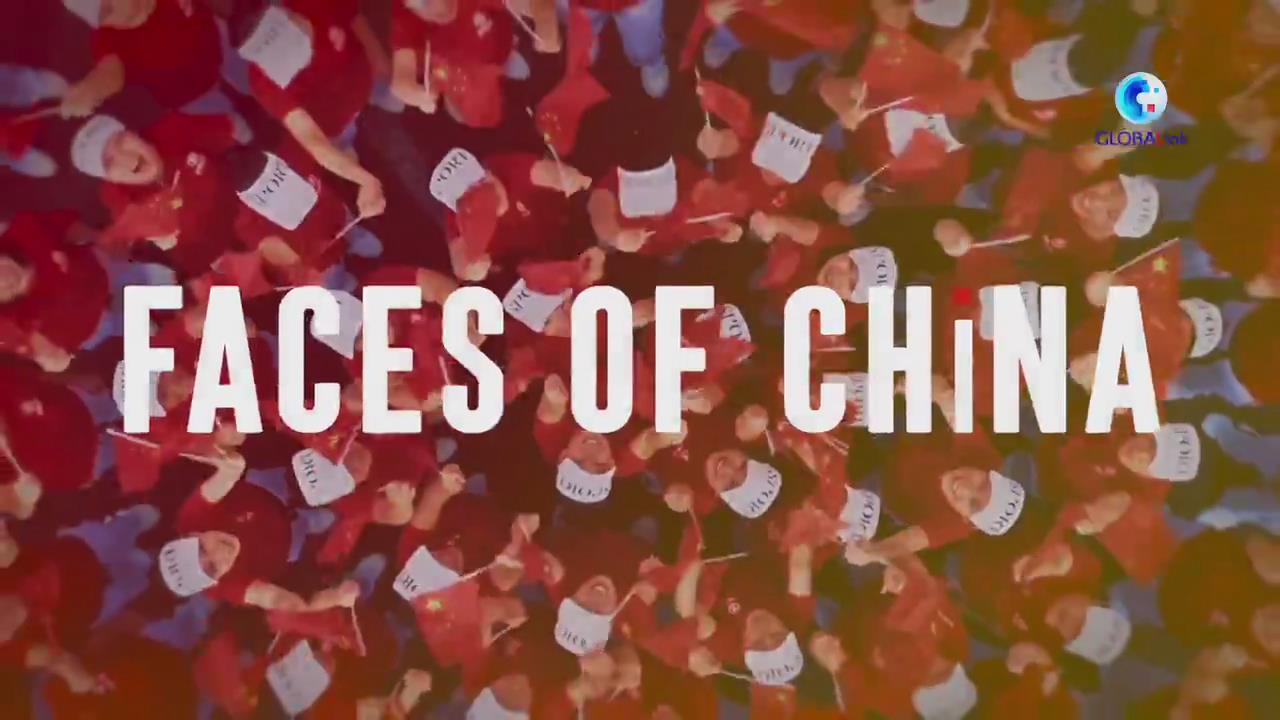Mary Shiavo Block, an attorney at Motley Rice Law Firm and an analyst for a mainstream media outlet in the United States, used the words "surprise" and "delight" to describe her first visit to Xinjiang.
"The real surprise is how much is going on, how big it is, how many opportunities and how it is leading China and the world in several industries," she told Xinhua during the 6th World Media Summit, held in Xinjiang Uygur Autonomous Region last week.
The summit was co-hosted by Xinhua News Agency and the regional government of Xinjiang.
Themed "Artificial Intelligence and Media Transformation," the event gathered over 500 participants from 106 countries and regions, including representatives of 208 mainstream media outlets, government agencies and international organizations.
After the opening ceremony and plenary conference were held in Urumqi, participants embarked on tours across Xinjiang to experience its diversity, inclusiveness and hospitality.
Block, who also attended the fifth edition of the summit held in the city of Guangzhou last year, noted that the city had become much bigger since her previous visit in 1995.
"I came back and every time it's different and bigger and more vibrant. And that's what's so interesting and great about China. It's always improving, always growing," Block said.
Since its inauguration in October 2009, the World Media Summit has become an important platform for global media to exchange wisdom and discuss cooperation. Many participants like Block engage with one another, observe the country firsthand, and leave with new insights.
"This might be the most representative and universal comprehensive forum," said Dmitrii Gornostaev, deputy editor-in-chief of Rossiya Segodnya Media Group.
Gornostaev said that he had long heard about the beauty of Xinjiang, and that when he saw Urumqi, he found it was bright and sunny, with wide roads and numerous construction sites -- all of which reflect the rapid development of the region.
Chikazawa Moriyasu, managing director of the International Department of Kyodo News, also visited Xinjiang for the first time. He said he was very surprised that the city of Urumqi was far more developed than he had expected, and that he didn't think that new buildings would have been constructed or that a huge conference center would already exist.
"Journalists are gathering from all around the world. I really expect to communicate with them directly and exchange opinions," he added.
"It's remarkable to see such a vast country developing so impressively, with progress evident in all regions, from the south to the north," said Iryna Akulovich, general director of the Belarusian Telegraph Agency (BelTA). Akulovich has visited China fives times and traveled extensively across the country.
"The city (of Urumqi) is clean and tidy, and people have smiles on their faces. Just as we see, so many ethnic groups live here. They are free to express their beliefs and aspirations and preserve their own culture," Akulovich said.
Although Ioanna-Maria Pierri, assistant managing editor of To Vima English Edition in Greece, speaks Chinese fluently, her recent trip was her first visit to China.
Pierri and her brother studied Chinese when they were children. While Pierri's brother found the language too difficult to continue, Pierri has continued her studies under the mentorship of a professor.
What impressed Pierri most on her trip was the Xinjiang Grand Theatre, where a Silk Road-themed show was staged.
"The stage was humongous. The screens were all over the place and on the ceiling, too. And you had people dancing and flying, with animals, waterfalls and then fountains on stage. I was extremely impressed," she said.
Global delegates also engaged in deep reflections on the use of AI in media development.
"It's really important to get AI to do it right and to do it as a positive thing for the world. And we're here trying to understand more about it and how the world's going to cooperate," Block told Xinhua, noting that there are no national boundaries in AI.
"We ourselves now frequently use AI," said Akulovich, citing news and advertisements that are pushed automatically to cellphones as an example. She added that AI now occupies a significant part of people's minds, leading people to make fewer proactive choices.
Noting that without true "intelligence," there can be no "ability," she said it is great that China brought so many countries together for the summit, as such issues need to be solved globally.
Wong Chun Wai, chairman of the Malaysian National News Agency, visited Xinjiang for a holiday 24 years ago and chose Kashgar for his group visit this year.
The continuous economic and social development in Xinjiang has shown him the immense potential and possibilities of the region, and has also filled him with anticipation for its future, he said.
He has always felt that Western press narratives about Xinjiang are unfair, he said, because you cannot write about somewhere if you haven't been to the place yourself.
"I've spoken to ordinary people in Kashgar. I asked about how their life has been," Wong said, adding that they had told him about the improvements to their lives.
While Wong chose to visit Kashgar, Chikazawa chose to visit Turpan.
"Chinese classic 'The Journey to the West' is very familiar to the Japanese people," Chikazawa said, adding that he had read the novel when he was young and knows that some of its important stories were set in Turpan.
"We Japanese have a very good imagination about the Silk Road. I want to see the real Silk Road," he said.

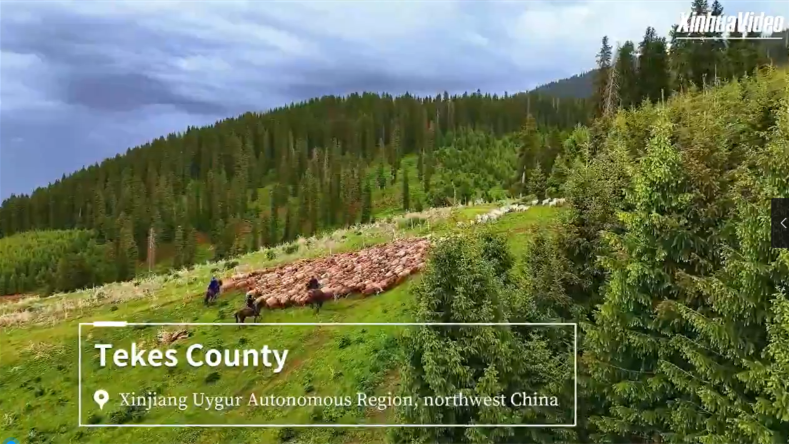
.png)
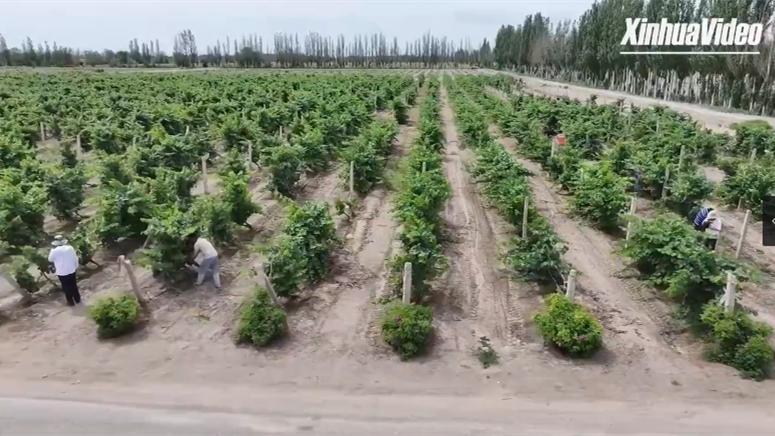
.png)

.png)









